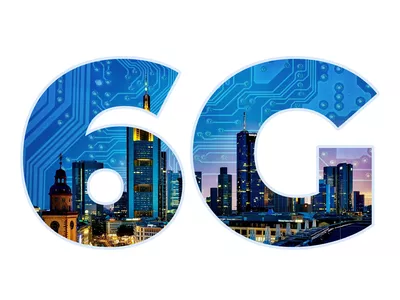
How to Transfer Photos from Vivo Y77t to Laptop Without USB | Dr.fone

How to Transfer Photos from Vivo Y77t to Laptop Without USB
Moving your photos on a computer comes with lots of benefits. Among them is the larger screen itself, which allows you to inspect the image details in a more thorough manner. Another thing is that the computer also serves as a great backup storage for your dearly cherished photos. You can be sure that the image folders you create in the computer’s local memory are highly secure. Just organize each file with labels to avoid unnecessary confusion. Simply put, our computers have a lot to offer with regard to file organization and data management.
Many people assume that copying your files to a computer is a bit of a hassle. Well, it’s somewhat true unless you’re going to opt for wireless data transfer. Yes. That’s possible. There are many tutorials out there on how to copy files from your phone to your laptop without USB. Simply choose a particular method that works best in your situation.
In this article, we will provide a short guide on how to organize your computer files easily and quickly. We will also list down a few tutorials on how to transfer photos from your phone to your laptop without USB. Continue reading below to learn more.
How to Organize the Photos on Your Computer
While smartphones offer convenience for snapping photos on the go, viewing your pictures is doubtlessly much better on a computer. Why not? Computers apparently have larger screens that increase image quality to another level. However, finding a specific photo in your desktop storage can be a daunting experience if your files are unorganized. Don’t worry. Listed below are some useful organization techniques that can help you a lot in this regard.
Add the Image Folders to the Photos Application
Many operating systems have a built-in Photos application to help you organize and view your pictures more efficiently. You may use it to organize your photos in separate folders and create a centralized hub for browsing.
Add Tags to Your Photos
Tagging your photos is a versatile way to categorize and organize them based on themes, events, or people. Most photo management applications allow you to add descriptive tags that make it easy to search the media files later. This is particularly useful for quickly locating pictures of specific occasions or individuals.
Keep Your Photos in Separate Folders
Make it a habit to create separate folders for different events, locations, or time periods. This organization method helps you maintain a clear structure for your photo collection. For example, you might have folders for vacations, family gatherings, or special occasions. Organizing photos this way simplifies navigation and ensures that each set of pictures is kept properly.
Rename Your Photo
Give your photos descriptive and unique filenames that reflect either their content or context. Organizing your files by their respective labels helps you find them easily instead of relying solely on visual cues. Consider including dates, locations, or key details in the filenames to make your photos easily identifiable.
NOTE: By incorporating these organization techniques, you can surely enjoy your memory collection on the larger canvas of your computer screen. Take advantage of these methods to transform your digital photo library into a well-ordered and easily accessible archive. Moreover, these are prerequisites for the tutorials on how to transfer photos from your phone to your laptop without USB.
How to Transfer Photos From Phone to Laptop Without USB in Easy Steps
Copying photos from smartphones to laptops has become significantly more straightforward today than in the past. In fact, the entire data migration process can be completed within a few minutes. No need to resort to advanced interventions and external assistance. Just choose a particular tutorial below on how to transfer photos from your phone to your laptop without USB. Initiate each step carefully and complete the procedure in no time. Check out the list below to get started.
Method 1: Transfer photos from phone to laptop using iCloud web
If you’re an Apple user, you can easily transfer photos from your phone to your computer via iCloud. Don’t worry. It’s a very simple data transfer procedure you can definitely complete with little to no effort. Here’s a short guide on how to transfer photos from your phone to your laptop without USB using iCloud.
- Step 1: First and foremost, make sure that your iPhone is syncing your photos to iCloud. To check it, go to Settings > Apple ID > iCloud > Photos. Toggle on the radio button next to Sync This iPhone.
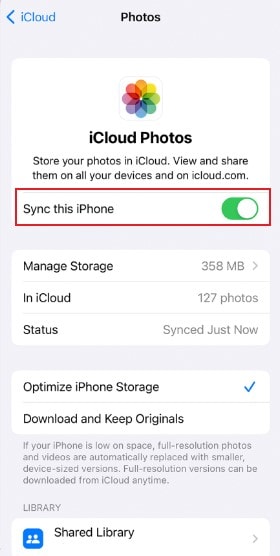
- Step 2: On your computer, launch the Browser.
- Step 3: Visit icloud.com. Once it fully loads up, click Sign In. Log in to the Apple ID account you’re currently using on your iPhone.
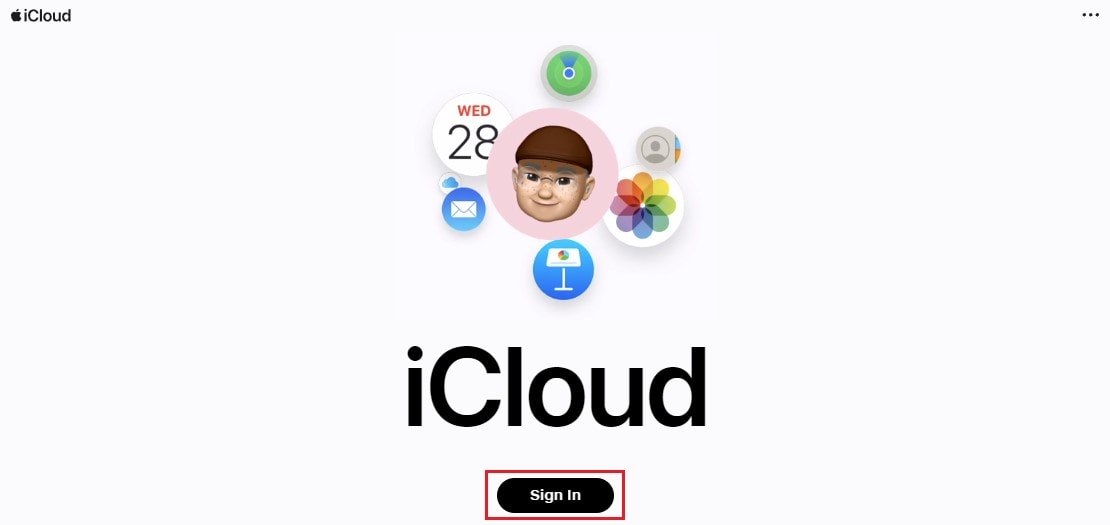
- Step 4: Click on the Photos icon.
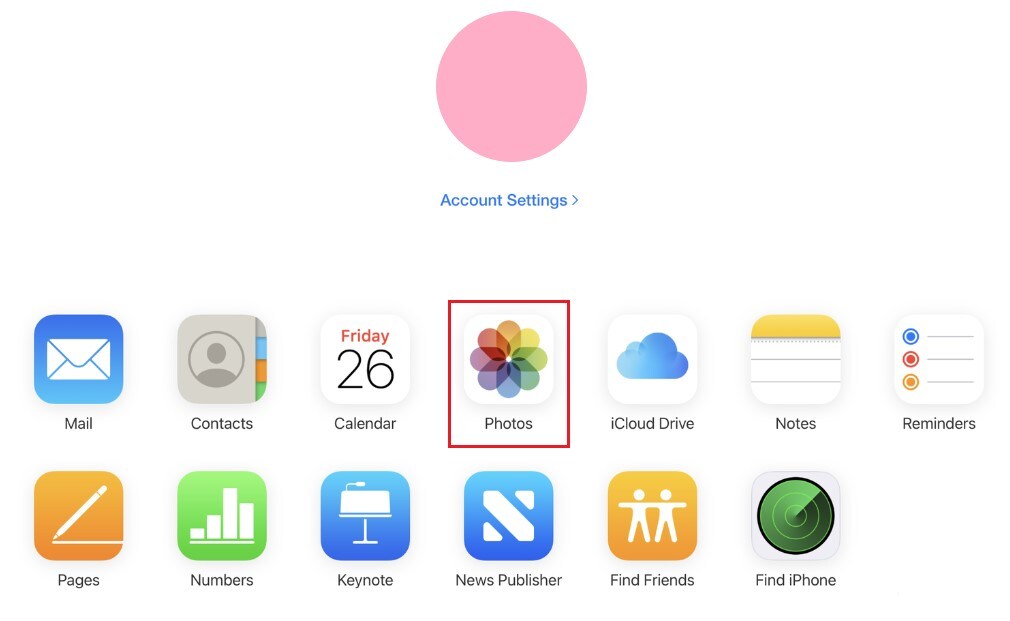
- Step 5: Select the photos you want to transfer to your computer. After that, click the Download icon at the top-right corner of your screen.
NOTE: How to transfer videos from your phone to your laptop without USB? This data migration technique also works in this regard.
Method 2: Transfer photos from phone to laptop using Google Photos
Google Photos is simply the iCloud’s substitute for Android smartphone. Like iCloud, you can sync your Android photos to Google Photos and access them from your computer. Don’t worry. It’s very easy to facilitate. Here’s how to transfer photos from your phone to your laptop without USB using Google Photos.
- Step 1: Before anything else, back up your Android smartphone first to Google Photos. Go to Google Photos > Profile icon > Turn On Backup. Once enabled, Google Photos will copy your photos from the local storage to the Google server.
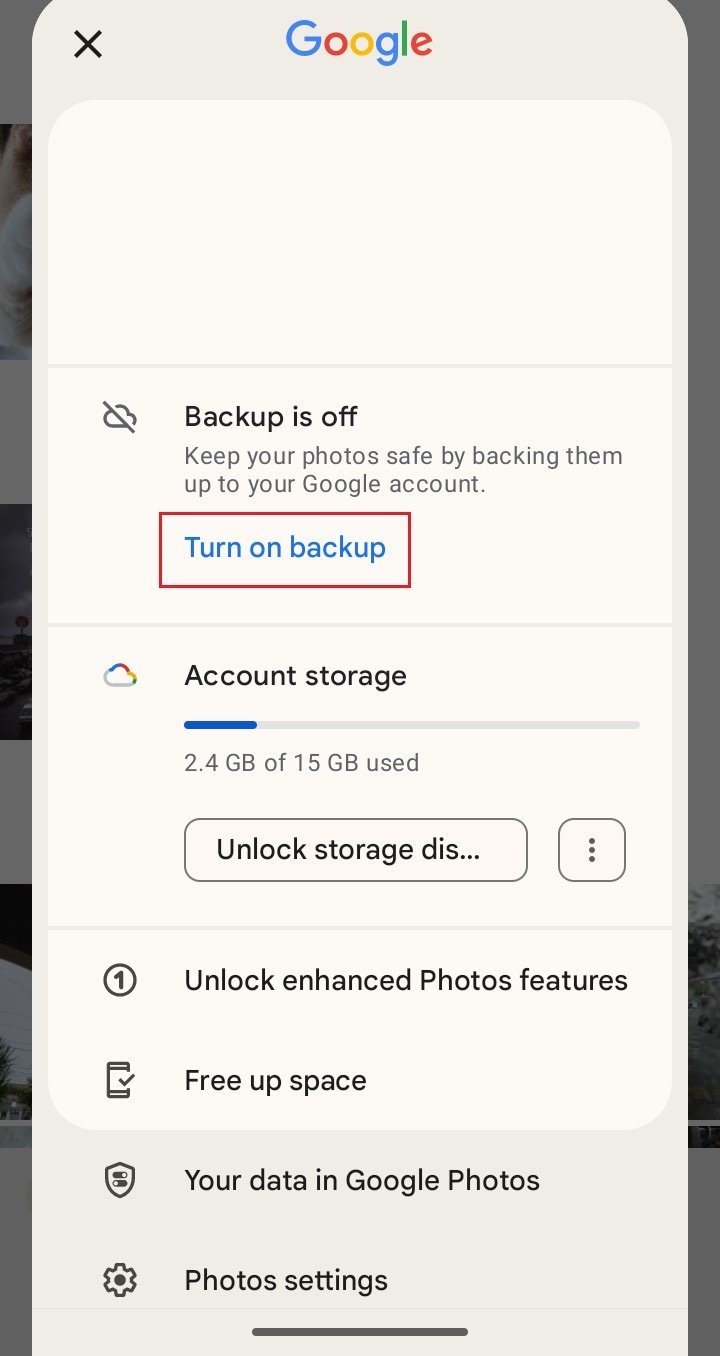
- Step 2: Launch the Browser on your computer. Go to google.com.
- Step 3: Click the Nine-dotted menu icon next to your profile. Make sure that you’re logged in to the same Gmail account you’re currently using on your smartphone.
- Step 4: Choose Photos.

- Step 5: Click the images you want to save on your computer. From there, click the Three-dotted menu icon. Find and click Download or press SHIFT + D on your keyboard.
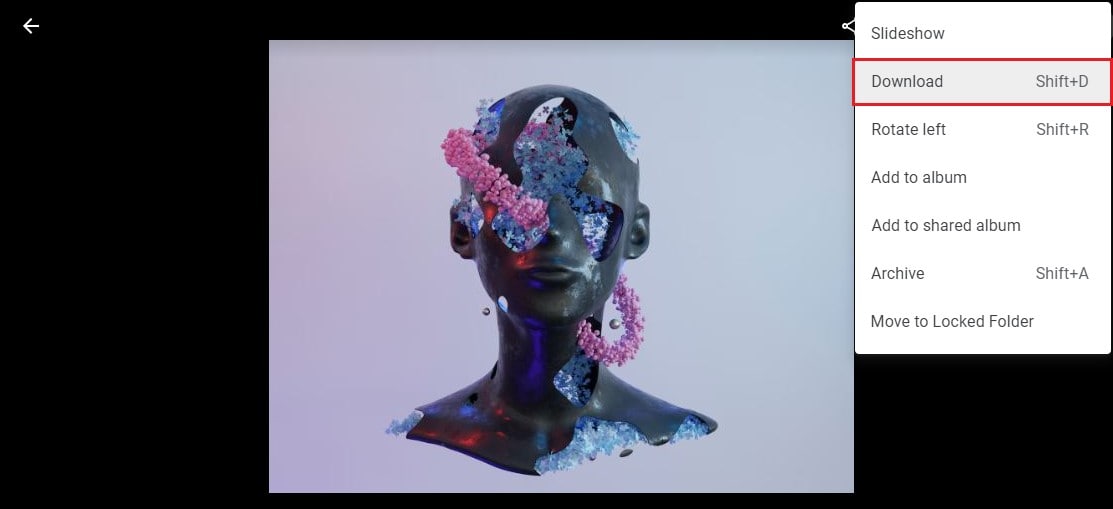
NOTE: How to transfer videos from your phone to your laptop without USB? This data migration technique also works in this regard.
Method 3: Transfer photos from phone to laptop using Bluetooth
Does your laptop have a Bluetooth connectivity feature? If so, try to use it for the photo transfer. Just connect your smartphone to the computer via Bluetooth and go ahead with the migration. Here’s a short guide on how to transfer photos from your phone to your laptop without USB via Bluetooth.
- Step 1: Turn on the Bluetooth connection on your smartphone and your computer.
- Step 2: On your smartphone, select the photos you want to transfer. Click on it.
- Step 3: Click Share.
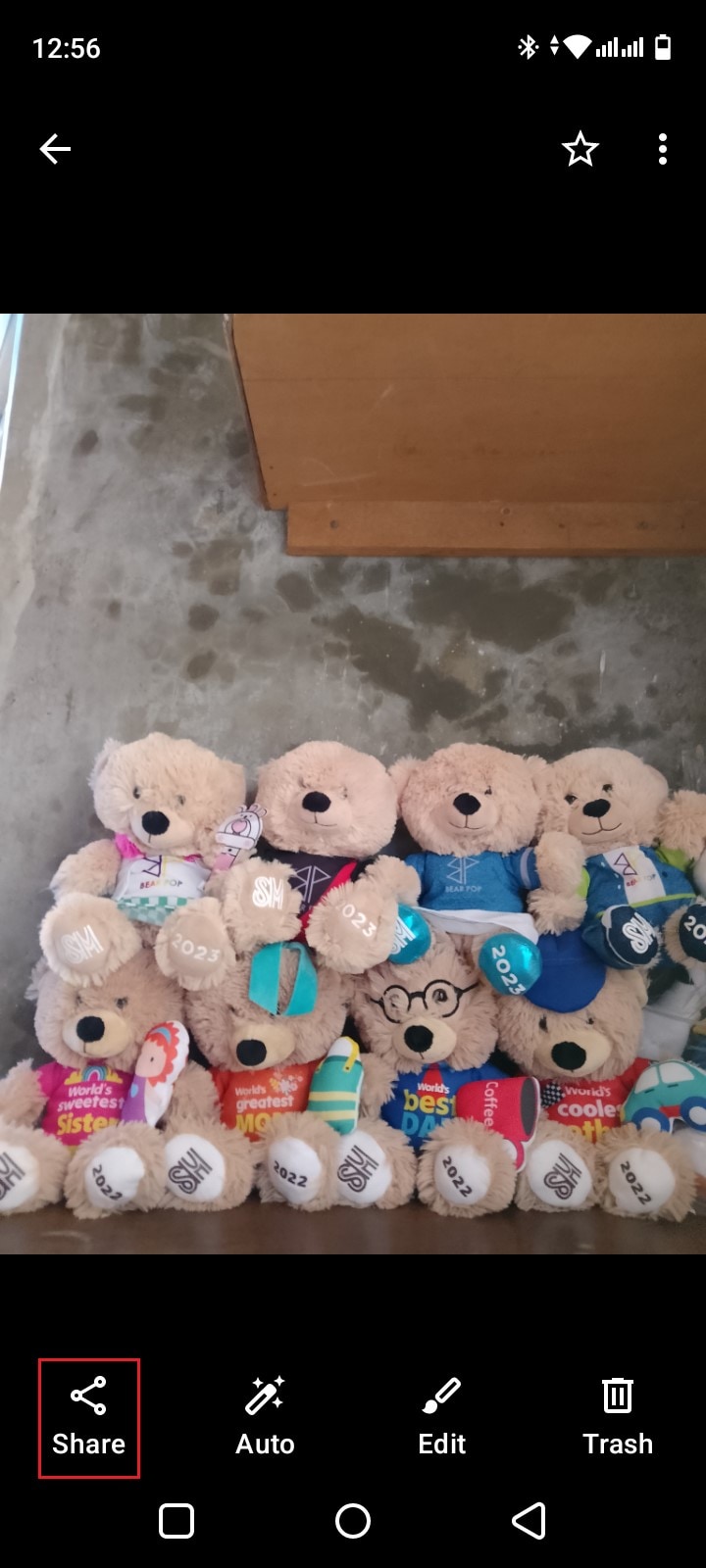
- Step 4: Click Bluetooth. Select your computer from the list. Then, click on it. Wait for the transfer to be completed in a few seconds.
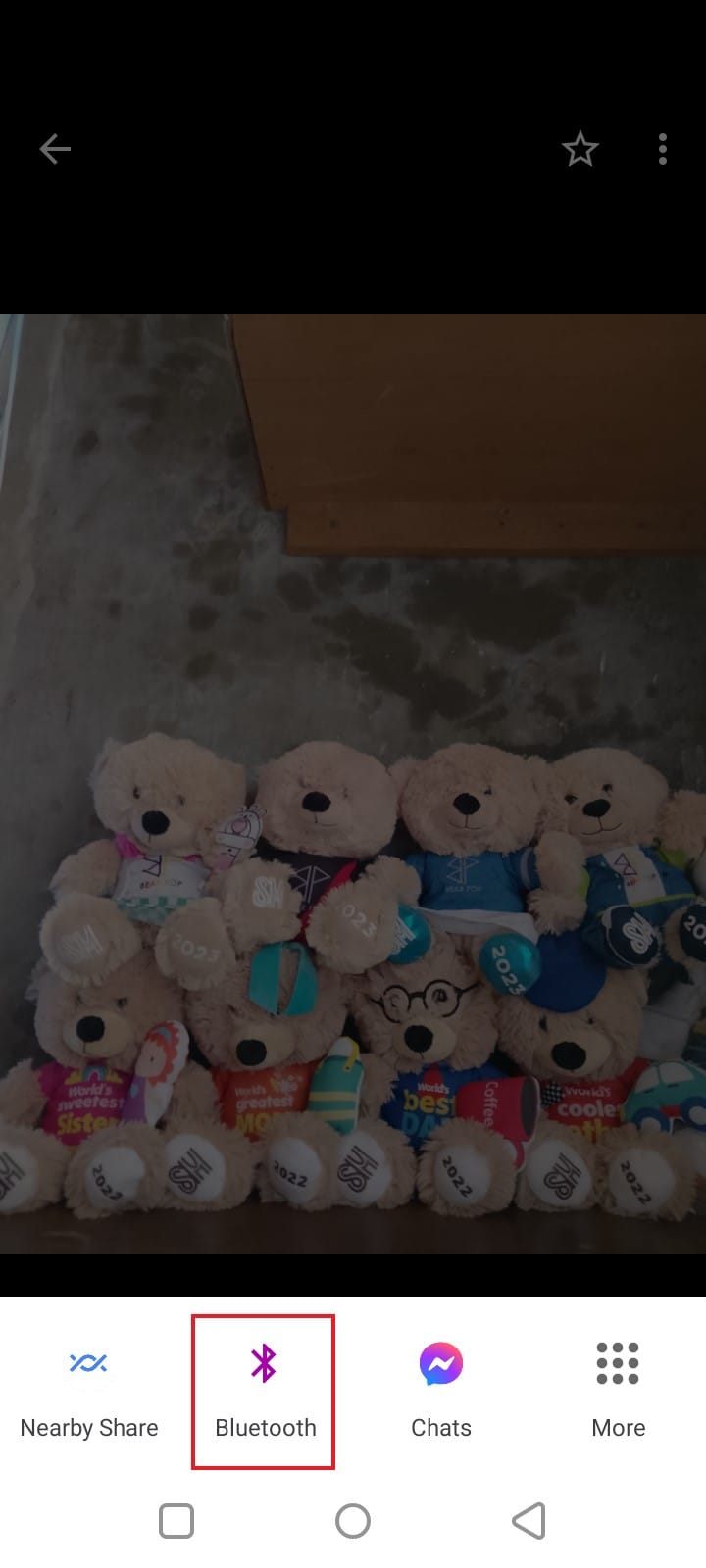
Method 4: Email the photos from the phone to the laptop
If you’re only sending a few photos to your laptop, emailing them from your smartphone will certainly work great. Here’s how to transfer photos from your phone to your laptop without USB via email.
- Step 1: Launch the Gmail application on your smartphone. From there, click Compose.
- Step 2: Key in the recipient’s email address to the To field. Make sure that it is currently logged in to the browser on your computer.
- Step 3: Click the Attachment icon on the top-right corner of your screen. After that, choose the photos you want to transfer.
- Step 4: Click the Send button.
- Step 5: On your computer, launch the browser and sign in to the Gmail account delegated as the receiver of the transfer.
- Step 6: Find and click the Email to view them. From there, hover the mouse cursor over the photo attachment you want to download. Lastly, click the Download icon.
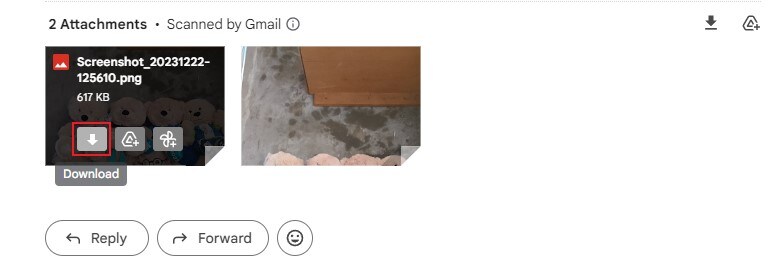
NOTE: How to copy files from your phone to your laptop without USB? This data migration technique also works in this regard.
Method 5: Transfer photos from phone to laptop using AirDrop
Are you using an iPhone and a Macbook? No problem. You may use AirDrop to move your photos between these two devices. Here’s a short guide on how to transfer photos from your phone to your computer without USB via AirDrop.
- Step 1: Activate AirDrop on your iPhone and Macbook.
- Step 2: On your iPhone, go to the Photos application.
- Step 3: Choose the media files you want to transfer. After that, click the Share icon at the bottom-left corner of your screen.
- Step 4: Choose AirDrop.
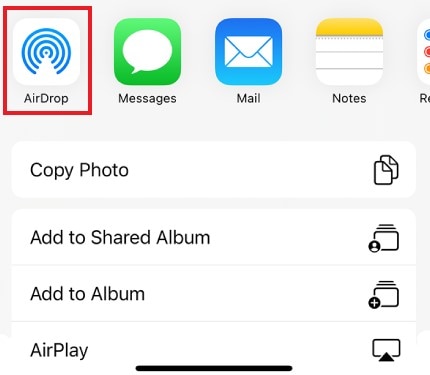
- Step 5: Select your Macbook as the recipient.
- Step 6: On your Macbook, click Accept.
BONUS TIP: How to Copy Files From One Smartphone to Another?
As a bonus, it is important to know that transferring files from one device to another in a secure environment is significant. It safely copies the documents and lowers the risk of data loss and corruption.
With the holidays fast approaching and the abundance of noteworthy photos, videos, and moments coming your way, having a steadfast solution is crucial. This is where Wondershare brings a compact yet efficient tool to help you. Wondershare Dr.Fone lets you quickly transfer photos and files to another mobile device in no time. To back this up, here is a quick, comprehensive guide on how to do it in a few simple steps.
Suppose you’re upgrading to an IOS device and need a quick way to transfer files from your old Android device. Then here’s your go-to guide using Wondershare Dr.Fone.
- Step 1: Open Wondershare Dr.Fone on your computer and navigate to the Toolbox section. Select the Phone Transfer tool.

- Step 2: Once opened, set the Source and Destination devices for the data transfer. Use the Flip button to change the transfer direction between the Vivo Y77t devices.
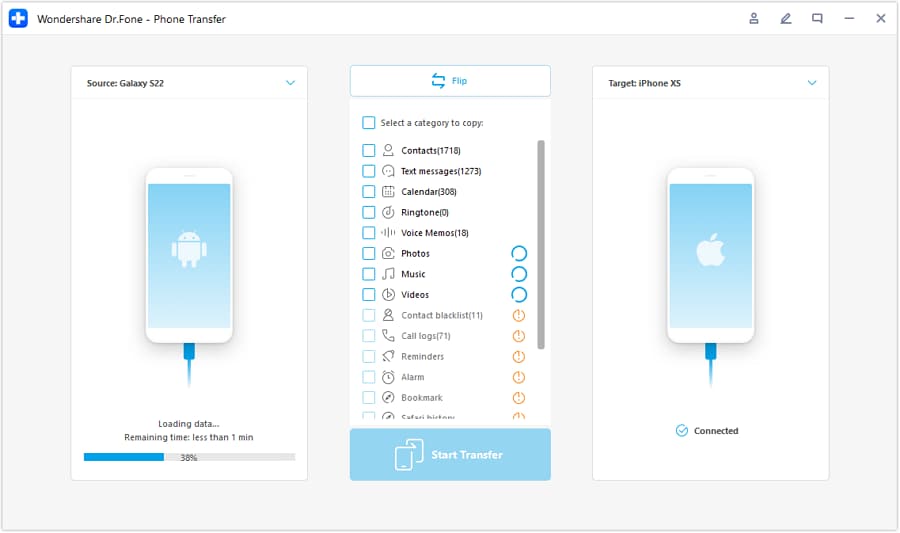
- Step 3: Set the transfer direction from Vivo Y77t to iOS. Select the specific data types you want to transfer. Checkmark the desired items and click Start Transfer.
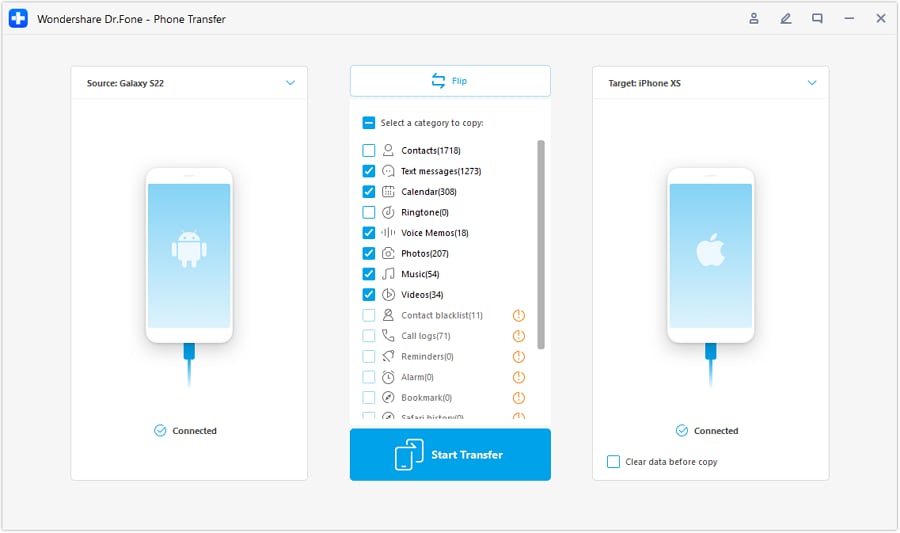
- Step 4: A new window will show the progress of the transfer. If you want to stop the operation, click Cancel.

- Step 5: Once completed, click OK to close the window.
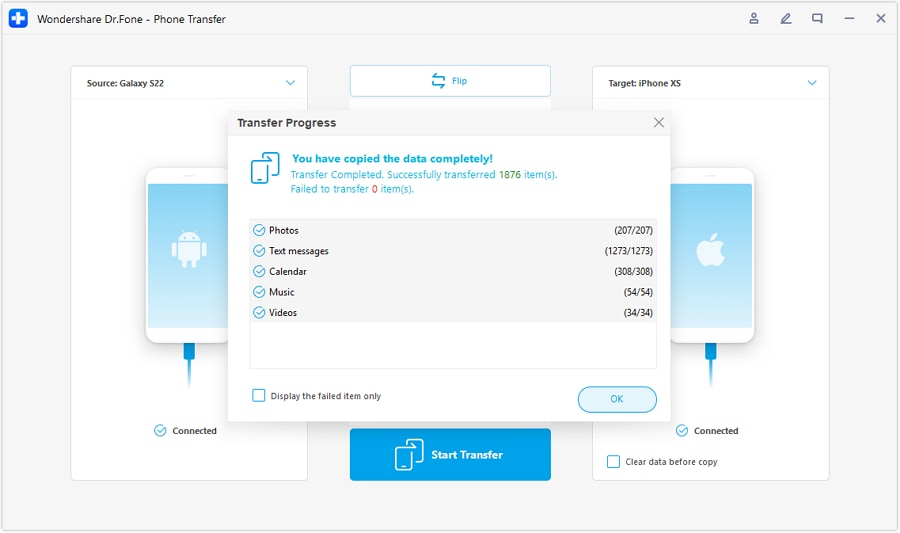
Conclusion
Navigating the digital landscape of photo organization and transfer has become increasingly vital in our fast-paced era. This article showcased various wireless methods, from iCloud to Bluetooth, and offered a step-by-step guide on how to transfer photos from phone to laptop without USB cables. As a valuable bonus, Wondershare Dr.Fone emerges as a trustworthy solution for efficiently transferring photos and files between mobile devices, ensuring a hassle-free experience. As we approach the holiday season, where memories are plentiful, having a reliable tool like Wondershare Dr.Fone can enhance the management of our digital archives, making it easier to cherish and share moments with friends and family.
How to Transfer Apps from Vivo Y77t to Another
Nowadays, the transfer of apps between devices has become an essential task. Switching from one phone to another requires a smooth transfer of applications. It is particularly important when transitioning to an Android device. This comprehensive guide explores how to transfer apps to new Android phones.
Moreover, understanding the app migration process is crucial whether you are moving from an iOS device or another Android phone. This article aims to simplify the journey, offering step-by-step instructions and expert tips.
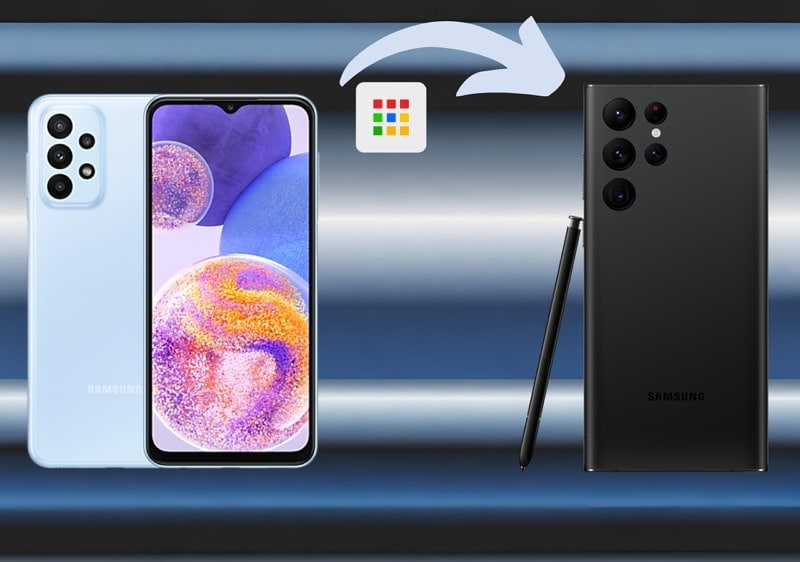
Part 1: Is It Possible To Transfer Apps from Vivo Y77t to Other Android Devices and iPhone to Android?
It is possible to transfer applications from an Android phone to another Android. There are multiple ways that Android offers to move apps between two smartphones. These include using the Google Play Store and signing in with the same Google account. Also, multiple tools and apps can assist you in this context.
By contrast, it is not feasible to transfer apps to a new Android phone from an iPhone. That’s mainly because of the different operating software in the two devices. The applications downloaded in iOS are not compatible with Android. Additionally, Google Play Store does not support these iOS applications. That’s why directly transferring apps from iPhone to Android is impossible. You must download it again from the Google Play Store on your Vivo Y77t.
Part 2: How To Transfer Apps From One Android Device to Another in 3 Simplified Steps?
You can try Wondershare Dr.Fone - Phone Transfer tool if you are trying to transfer apps from one Android to another. This tool offers an efficient and convenient solution for transferring data between devices. With a one-click method, it simplifies moving various data types, including contacts, apps, photos, videos, and more.
Also, the software supports a wide range of devices, including the latest products of Apple, Samsung, and other famous brands. Notably, it is compatible with the latest iOS 17 and Android 14 versions, ensuring smooth data transfer. This makes it a versatile tool for users seeking a hassle-free and convenient data transfer experience across various devices.
Key Features
- Wondershare Dr.Fone – Phone Transfer tool allows you to select the desired type of files and transfer them with just one click.
- The tool enables the users to transfer within devices in a few minutes. This saves a lot of time and increases the productivity of the users.
- This software is operatable and provides easy navigation for each kind of user. That means you don’t have to be a tech expert to run the tool.
Steps Involved To Transfer Apps From One Android Device to Another Using the Phone Transfer Tool
Wondershare Dr.Fone – Phone Transfer provides a complete solution through a phone transfer process. You can discover the following essential steps in this how to transfer apps to a new Android phone procedure:
- Step 1: Download Dr.Fone and Choose Phone Transfer Tool
Download the Wondershare Dr.Fone toolkit by pressing the “Free Download” provided and install it on your Windows PC or MacBook. Next, choose the “Phone Transfer” tool from the “Toolbox” tab present on the left side.

- Step 2: Device Selection for Android-to-Android Transfer
Start the process by connecting both Android devices to load their data onto the platform. After that, designate the “Source” and “Destination” devices for the transfer. You can also use the “Flip” button to flip the Vivo Y77t devices.
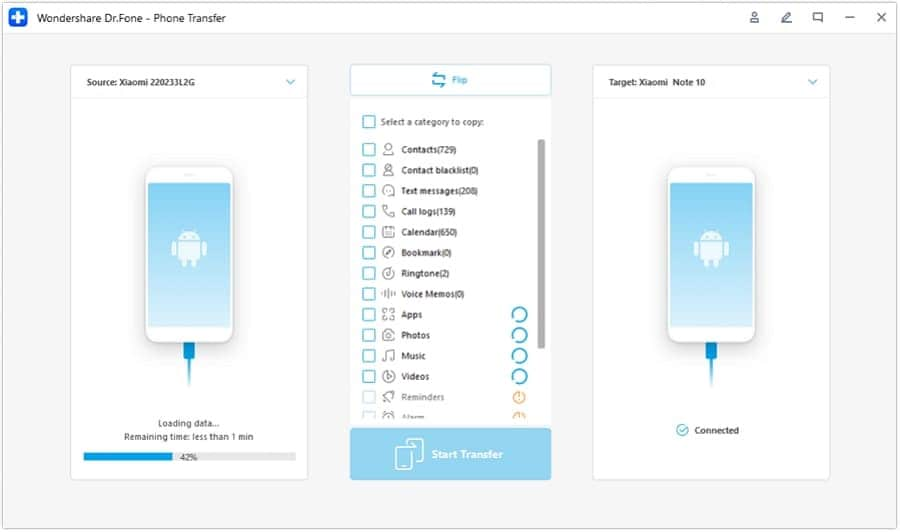
- Step 3: Select the Data Categories for Transfer
Now, you have to select the “Apps” category to be transferred in this process. Proceed by clicking the “Start Transfer” button after selecting it to start the transfer. A window will display the progress of the transfer, where you can view the progress bar. Upon successfully completing the data transfer, a confirmation message will appear on the window. Hit the “OK” button to conclude the transfer process.
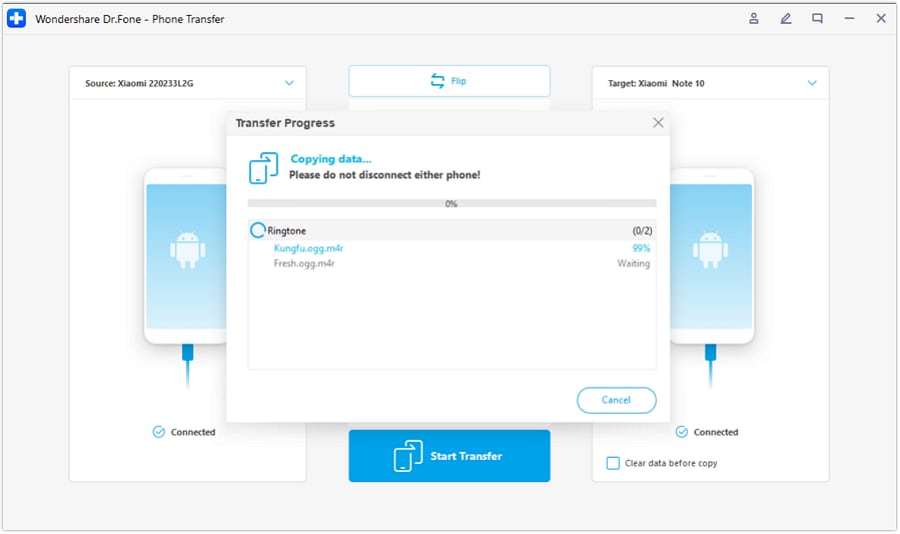
Part 3: How To Transfer Apps From Non-Samsung to Galaxy Devices Using Samsung Smart Switch?
Samsung Smart Switch allows you to quickly transfer various contents from your one Android phone to a Galaxy device. Also, it provides you the option to transfer contents selectively. The contents include apps, contacts, messages, media, and more. Here, we’ll transfer apps from a non-Samsung Android phone to a Galaxy device.
- Step 1: First of all, you have to open the Smart Switch application on your Galaxy device. Then, tap “Continue” to agree with the terms and conditions. After that, allow the app’s specific permissions to continue the operation.
- Step 2: Next, open the Smart Switch app on the old device and tap the “Send Data” option. Then, select the “Wireless” option to start the procedure.
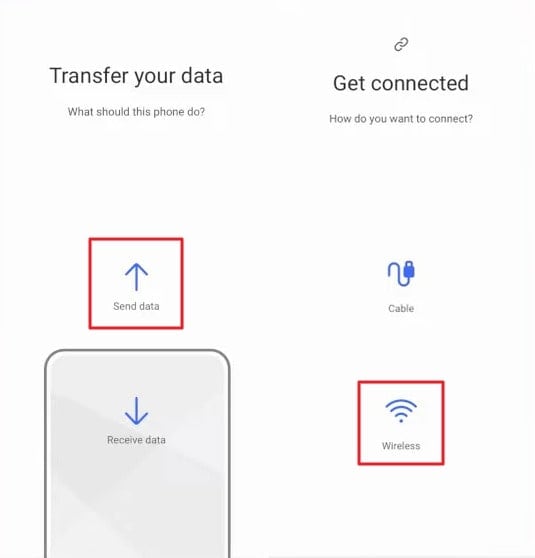
- Step 3: Now, you have to tap the “Receive Data” option on your Galaxy device. Next, select the “Galaxy/Android” option as a data source, followed by the “Wireless” option. Then, you need to “Allow” the connection on the old device that this new device wants to have.
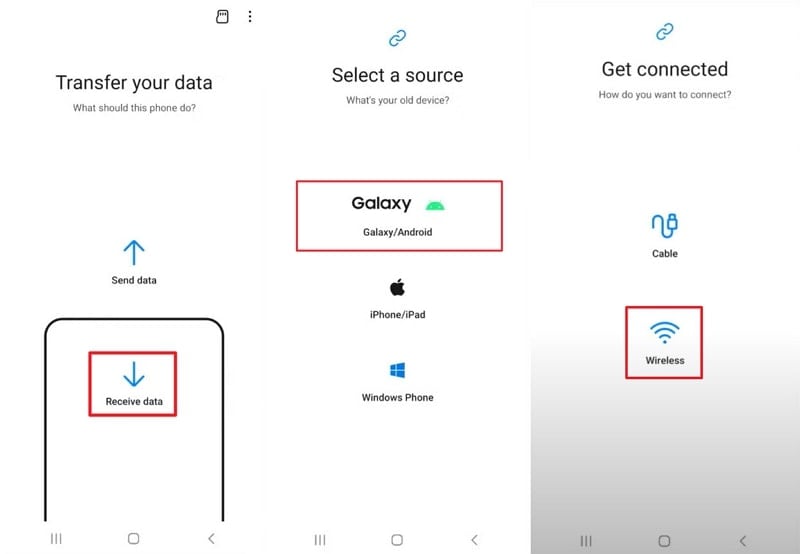
- Step 4: The Galaxy phone will subsequently ask for the data selection. There, you can go into the “Custom” option and select the “Apps” option. Next, choose the applications you want to transfer and hit the “Transfer” option. The transfer process will be complete within a few minutes. You can tap on the “Go to the Home Screen” prompt and find the apps you have just transferred.
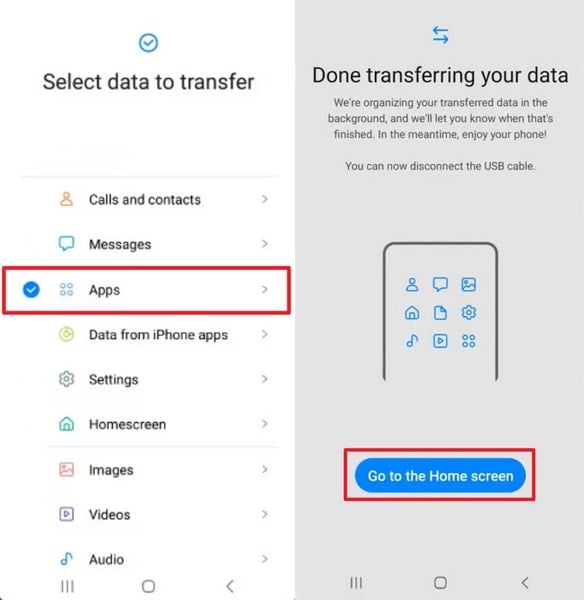
Part 4: How To Transfer Apps Between Android Devices With the Help of Google Backup
There is another method that you can try to transfer apps to a new Android phone. This includes restoring a Google backup on a new device. You can back up all of your data, including the applications, to the Google account you have signed in. Later, you can restore the same data on a new device quite easily:
- Step 1: First,access the “Settings” menu on your old Android device and tap on the “Additional Settings.” Then, you need to navigate to and tap on the “Back up and Restore” option.
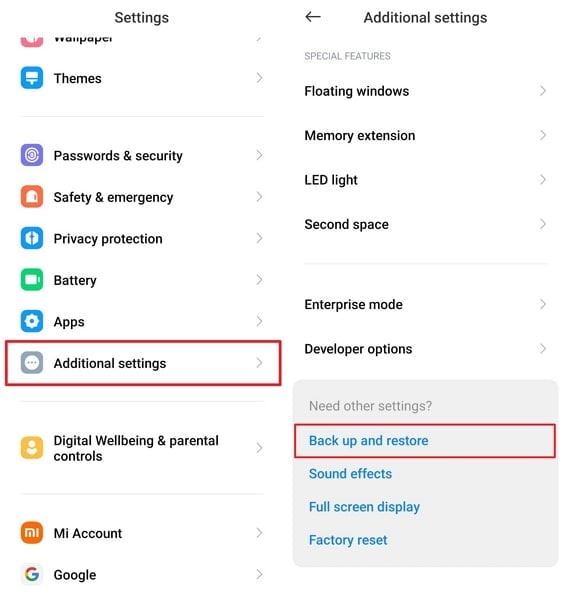
- Step 2: Next, choose the “Google Account” option and enable the “Backup by Google One” toggle. If the toggle is off, slide it to activate and select “Back up Now.” After that, your data is securely stored when the backup process finishes.
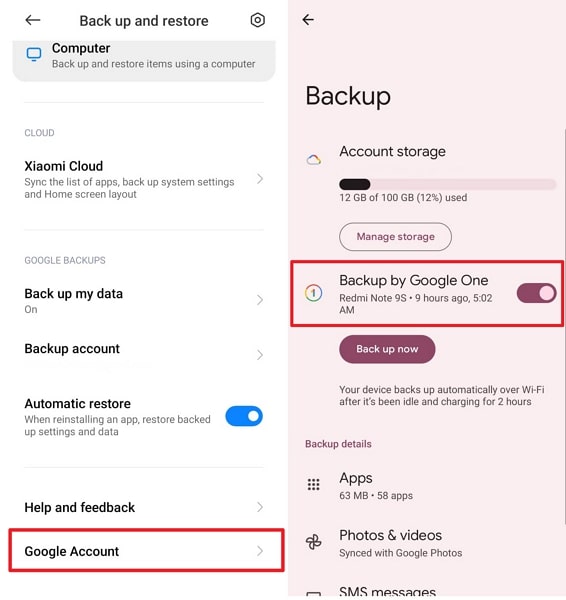
- Step 3: To restore your data, you have to charge and power up your new Android device. Then, follow the on-screen instructions until prompted to restore data from another device. Following this, you will have to choose the Vivo Y77t device from which you want to restore data and tap the “Copy Your Data” option.
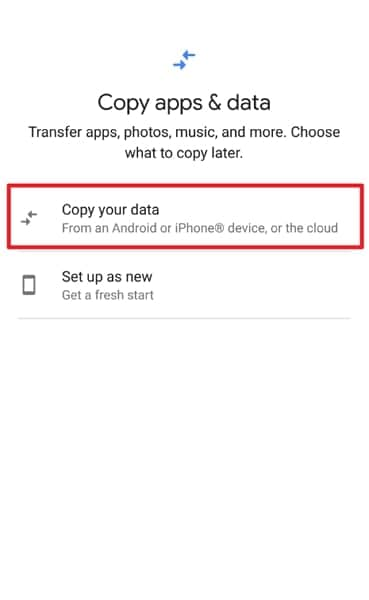
- Step 4: Next,connect your Vivo Y77t to the same Wi-Fi network as your old phone is connected. Then, select “A backup from the cloud” from the restoration options. In the next step, sign in to your Google account on your new device using the same account as your old phone. Now, you need to choose the recent backup from your old device.
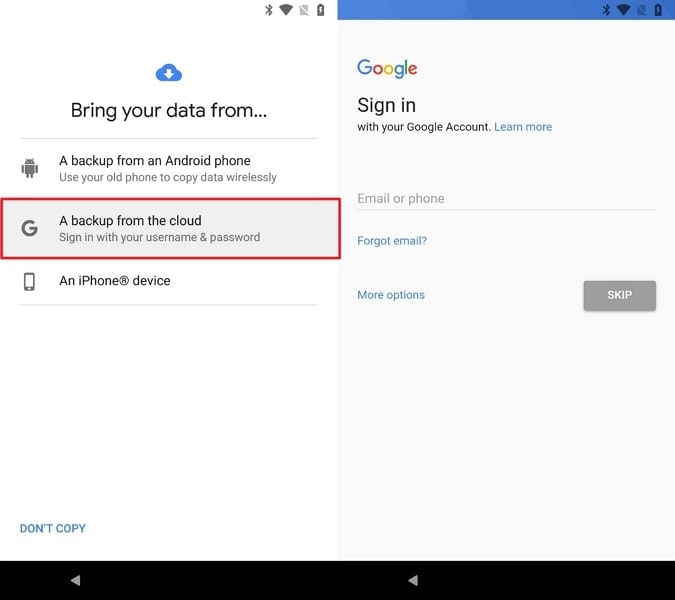
- Step 5: Lastly, you can choose the “Apps” option to pick the apps you want on the new device. Afterward, you have to tap on the “Restore” option to restore your Google backup.
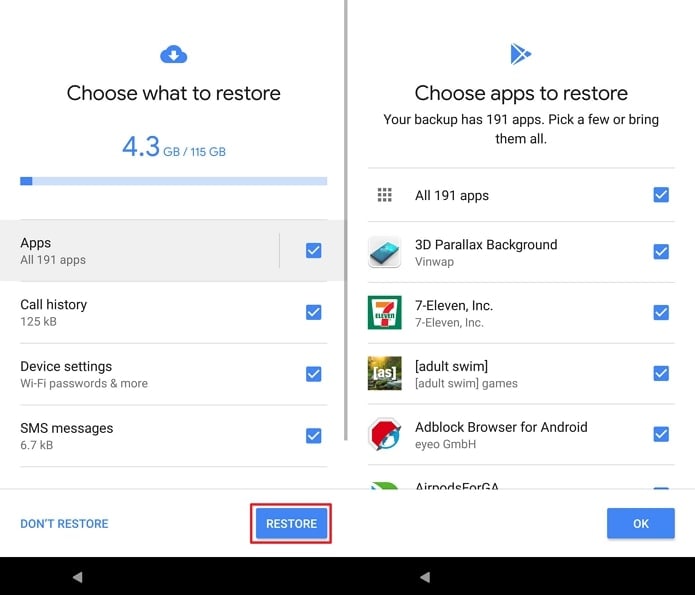
Part 5: How To Transfer and Download Apps From One Phone to Another Using Play Store
You can also transfer apps from one phone to another using the Play Store. It’s more like downloading apps and a time-consuming procedure. This manual method uses the Play Store to detect applications not installed on your new Galaxy device. Then, after the detection process, you can download those applications. The “how to transfer apps to new Android phone” method includes some steps that are described below.
- Step 1: First, access the “Google Play Store” on your new Android device and tap the “Profile” icon situated at the upper right corner of the search bar. Among the displayed options, proceed with choosing “Manage Apps & Device” to proceed.
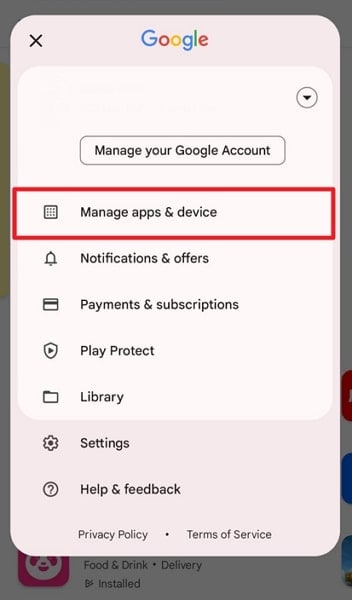
- Step 2: Then, move to the “Manage” section and select the “Installed” drop-down menu. From there, opt for the “Not Installed” category to see all the previously installed apps of your old Android smartphone.
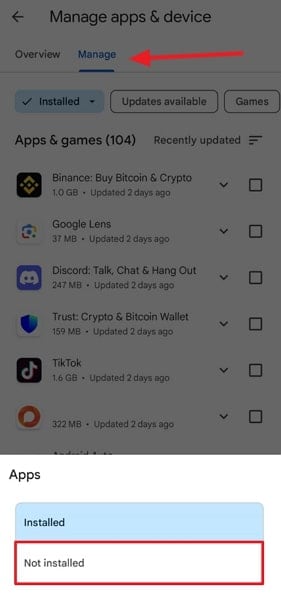
- Step 3: You’ll encounter a list of previously installed apps linked to your Google account but not currently on your new Galaxy device. Choose the desired apps and tap the “Install” button located at the top right to reinstall them.
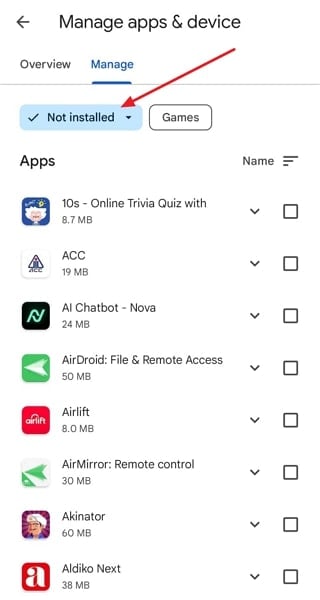
Conclusion
In a nutshell, you can transfer the applications from your old Android device to a new Galaxy phone using various methods. We have described these effective methods through which you can easily transfer your old apps. However, the Wondershare Dr.Fone – Phone Transfer method stands out as the best technique to transfer apps to new Android phones. The software allows the transfer process to be implemented in simple steps that require a few clicks.
How to Transfer Photos from Vivo Y77t to Laptop Without USB
Moving your photos on a computer comes with lots of benefits. Among them is the larger screen itself, which allows you to inspect the image details in a more thorough manner. Another thing is that the computer also serves as a great backup storage for your dearly cherished photos. You can be sure that the image folders you create in the computer’s local memory are highly secure. Just organize each file with labels to avoid unnecessary confusion. Simply put, our computers have a lot to offer with regard to file organization and data management.
Many people assume that copying your files to a computer is a bit of a hassle. Well, it’s somewhat true unless you’re going to opt for wireless data transfer. Yes. That’s possible. There are many tutorials out there on how to copy files from your phone to your laptop without USB. Simply choose a particular method that works best in your situation.
In this article, we will provide a short guide on how to organize your computer files easily and quickly. We will also list down a few tutorials on how to transfer photos from your phone to your laptop without USB. Continue reading below to learn more.
How to Organize the Photos on Your Computer
While smartphones offer convenience for snapping photos on the go, viewing your pictures is doubtlessly much better on a computer. Why not? Computers apparently have larger screens that increase image quality to another level. However, finding a specific photo in your desktop storage can be a daunting experience if your files are unorganized. Don’t worry. Listed below are some useful organization techniques that can help you a lot in this regard.
Add the Image Folders to the Photos Application
Many operating systems have a built-in Photos application to help you organize and view your pictures more efficiently. You may use it to organize your photos in separate folders and create a centralized hub for browsing.
Add Tags to Your Photos
Tagging your photos is a versatile way to categorize and organize them based on themes, events, or people. Most photo management applications allow you to add descriptive tags that make it easy to search the media files later. This is particularly useful for quickly locating pictures of specific occasions or individuals.
Keep Your Photos in Separate Folders
Make it a habit to create separate folders for different events, locations, or time periods. This organization method helps you maintain a clear structure for your photo collection. For example, you might have folders for vacations, family gatherings, or special occasions. Organizing photos this way simplifies navigation and ensures that each set of pictures is kept properly.
Rename Your Photo
Give your photos descriptive and unique filenames that reflect either their content or context. Organizing your files by their respective labels helps you find them easily instead of relying solely on visual cues. Consider including dates, locations, or key details in the filenames to make your photos easily identifiable.
NOTE: By incorporating these organization techniques, you can surely enjoy your memory collection on the larger canvas of your computer screen. Take advantage of these methods to transform your digital photo library into a well-ordered and easily accessible archive. Moreover, these are prerequisites for the tutorials on how to transfer photos from your phone to your laptop without USB.
How to Transfer Photos From Phone to Laptop Without USB in Easy Steps
Copying photos from smartphones to laptops has become significantly more straightforward today than in the past. In fact, the entire data migration process can be completed within a few minutes. No need to resort to advanced interventions and external assistance. Just choose a particular tutorial below on how to transfer photos from your phone to your laptop without USB. Initiate each step carefully and complete the procedure in no time. Check out the list below to get started.
Method 1: Transfer photos from phone to laptop using iCloud web
If you’re an Apple user, you can easily transfer photos from your phone to your computer via iCloud. Don’t worry. It’s a very simple data transfer procedure you can definitely complete with little to no effort. Here’s a short guide on how to transfer photos from your phone to your laptop without USB using iCloud.
- Step 1: First and foremost, make sure that your iPhone is syncing your photos to iCloud. To check it, go to Settings > Apple ID > iCloud > Photos. Toggle on the radio button next to Sync This iPhone.

- Step 2: On your computer, launch the Browser.
- Step 3: Visit icloud.com. Once it fully loads up, click Sign In. Log in to the Apple ID account you’re currently using on your iPhone.

- Step 4: Click on the Photos icon.

- Step 5: Select the photos you want to transfer to your computer. After that, click the Download icon at the top-right corner of your screen.
NOTE: How to transfer videos from your phone to your laptop without USB? This data migration technique also works in this regard.
Method 2: Transfer photos from phone to laptop using Google Photos
Google Photos is simply the iCloud’s substitute for Android smartphone. Like iCloud, you can sync your Android photos to Google Photos and access them from your computer. Don’t worry. It’s very easy to facilitate. Here’s how to transfer photos from your phone to your laptop without USB using Google Photos.
- Step 1: Before anything else, back up your Android smartphone first to Google Photos. Go to Google Photos > Profile icon > Turn On Backup. Once enabled, Google Photos will copy your photos from the local storage to the Google server.

- Step 2: Launch the Browser on your computer. Go to google.com.
- Step 3: Click the Nine-dotted menu icon next to your profile. Make sure that you’re logged in to the same Gmail account you’re currently using on your smartphone.
- Step 4: Choose Photos.

- Step 5: Click the images you want to save on your computer. From there, click the Three-dotted menu icon. Find and click Download or press SHIFT + D on your keyboard.

NOTE: How to transfer videos from your phone to your laptop without USB? This data migration technique also works in this regard.
Method 3: Transfer photos from phone to laptop using Bluetooth
Does your laptop have a Bluetooth connectivity feature? If so, try to use it for the photo transfer. Just connect your smartphone to the computer via Bluetooth and go ahead with the migration. Here’s a short guide on how to transfer photos from your phone to your laptop without USB via Bluetooth.
- Step 1: Turn on the Bluetooth connection on your smartphone and your computer.
- Step 2: On your smartphone, select the photos you want to transfer. Click on it.
- Step 3: Click Share.

- Step 4: Click Bluetooth. Select your computer from the list. Then, click on it. Wait for the transfer to be completed in a few seconds.

Method 4: Email the photos from the phone to the laptop
If you’re only sending a few photos to your laptop, emailing them from your smartphone will certainly work great. Here’s how to transfer photos from your phone to your laptop without USB via email.
- Step 1: Launch the Gmail application on your smartphone. From there, click Compose.
- Step 2: Key in the recipient’s email address to the To field. Make sure that it is currently logged in to the browser on your computer.
- Step 3: Click the Attachment icon on the top-right corner of your screen. After that, choose the photos you want to transfer.
- Step 4: Click the Send button.
- Step 5: On your computer, launch the browser and sign in to the Gmail account delegated as the receiver of the transfer.
- Step 6: Find and click the Email to view them. From there, hover the mouse cursor over the photo attachment you want to download. Lastly, click the Download icon.

NOTE: How to copy files from your phone to your laptop without USB? This data migration technique also works in this regard.
Method 5: Transfer photos from phone to laptop using AirDrop
Are you using an iPhone and a Macbook? No problem. You may use AirDrop to move your photos between these two devices. Here’s a short guide on how to transfer photos from your phone to your computer without USB via AirDrop.
- Step 1: Activate AirDrop on your iPhone and Macbook.
- Step 2: On your iPhone, go to the Photos application.
- Step 3: Choose the media files you want to transfer. After that, click the Share icon at the bottom-left corner of your screen.
- Step 4: Choose AirDrop.

- Step 5: Select your Macbook as the recipient.
- Step 6: On your Macbook, click Accept.
BONUS TIP: How to Copy Files From One Smartphone to Another?
As a bonus, it is important to know that transferring files from one device to another in a secure environment is significant. It safely copies the documents and lowers the risk of data loss and corruption.
With the holidays fast approaching and the abundance of noteworthy photos, videos, and moments coming your way, having a steadfast solution is crucial. This is where Wondershare brings a compact yet efficient tool to help you. Wondershare Dr.Fone lets you quickly transfer photos and files to another mobile device in no time. To back this up, here is a quick, comprehensive guide on how to do it in a few simple steps.
Suppose you’re upgrading to an IOS device and need a quick way to transfer files from your old Android device. Then here’s your go-to guide using Wondershare Dr.Fone.
- Step 1: Open Wondershare Dr.Fone on your computer and navigate to the Toolbox section. Select the Phone Transfer tool.

- Step 2: Once opened, set the Source and Destination devices for the data transfer. Use the Flip button to change the transfer direction between the Vivo Y77t devices.

- Step 3: Set the transfer direction from Vivo Y77t to iOS. Select the specific data types you want to transfer. Checkmark the desired items and click Start Transfer.

- Step 4: A new window will show the progress of the transfer. If you want to stop the operation, click Cancel.

- Step 5: Once completed, click OK to close the window.

Conclusion
Navigating the digital landscape of photo organization and transfer has become increasingly vital in our fast-paced era. This article showcased various wireless methods, from iCloud to Bluetooth, and offered a step-by-step guide on how to transfer photos from phone to laptop without USB cables. As a valuable bonus, Wondershare Dr.Fone emerges as a trustworthy solution for efficiently transferring photos and files between mobile devices, ensuring a hassle-free experience. As we approach the holiday season, where memories are plentiful, having a reliable tool like Wondershare Dr.Fone can enhance the management of our digital archives, making it easier to cherish and share moments with friends and family.
- Title: How to Transfer Photos from Vivo Y77t to Laptop Without USB | Dr.fone
- Author: Emma
- Created at : 2024-07-17 20:53:54
- Updated at : 2024-07-18 20:53:54
- Link: https://android-transfer.techidaily.com/how-to-transfer-photos-from-vivo-y77t-to-laptop-without-usb-drfone-by-drfone-transfer-from-android-transfer-from-android/
- License: This work is licensed under CC BY-NC-SA 4.0.






